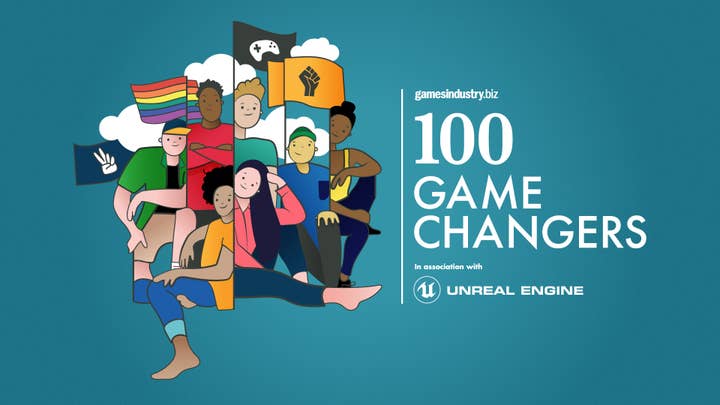GI 100 | Game Changers -- Part Six
Game Changers continues with uniting Arabic developers, putting Indonesia on the industry map, and representing the refugee experience in a video game
As 2020 draws to a close, many will reflect on 12 months defined by stress, upheaval, and the urgent need to confront some difficult truths about the way the games industry operates, and the myriad ways it can be a better and more inclusive place.
But just as that process of self-examination is necessary, so too is recognition for those already working to solve those problems. In this GI 100 series we will profile 100 individuals and organisations making progress in vital areas like diversity, accessibility, charity, mental health, progressive politics, lifting emerging markets, uniting communities, and more -- people whose stories can show us how this industry can be that better and more inclusive place.
Below is the sixth group of ten Game Changers, with ten more to follow every working day until December 18. The project is sponsored by Unreal Engine and you can read more about it, and find links to all of the articles, here.
Samer Abbas and Danar Kayfi, Game Zanga
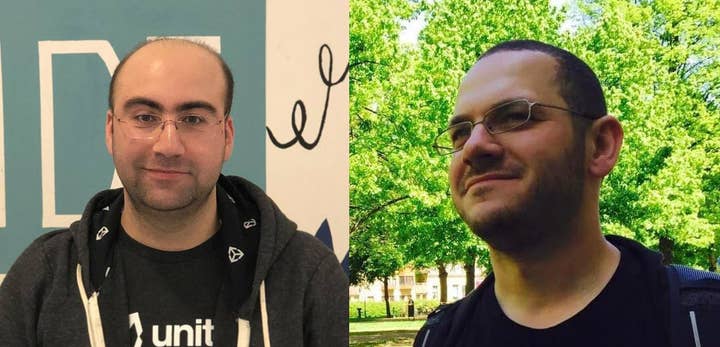
Throughout the Game Changers project, you will see examples of solidarity between countries in regions where opportunity is thin on the ground. That is certainly true of the Middle East and North Africa (MENA), which has one of the strongest regional identities in the global games industry.
In terms of the evolution of development culture, the impact of the Game Zanga game jam cannot be underestimated. It started in 2011, a point in time when Unity and Flash had motivated people all over the world to start making games.
"Game Zanga offered people across the region's 20-plus countries an opportunity for the first time to be present together online in one regional, game development-focused event," says Samer Abbas, who organised the first four editions before handing the reins to Danar Kayfi.
"Individuals and small communities that did not know of each other's existence discovered that they were part of a larger group. Suddenly they could share experiences with many more like-minded people speaking in their native language."
Game Zanga had myriad positive effects: the region's developers gained confidence to share work and feedback with their peers; it inspired local communities within MENA to start their own community groups; it drew the attention of influential people and companies, leading to what Abbas describes as "a kind of support that made the developers in a region not known for its games output feel validated and taken seriously."
"Individuals and small communities that did not know of each other's existence discovered that they were part of a larger group"
Samer Abbas
Game Zanga will celebrate its tenth anniversary on December 15. Under the guidance of Abbas and Kayfi, it has provided a platform for thousands of the MENA region's developers -- a platform that, in many cases, led to careers in the games industry. More than that, it created connection and friendship across national borders, between people who had never met but shared a language and cultural heritage.
Abbas continues to promote and elevate the Arabic games industry, with a particular focus on improving marketing knowledge and connections to platform holders. Kayfi has been Game Zanga's main organiser for the last six years, a responsibility he has embraced alongside his work in games education in Jordan and, since 2017, his native country, Iraq.
"Since then I started working on spreading the knowledge of game dev in Iraq, through workshops and events in collaboration with universities and NGOs," Kayfi says. "The game dev workshops were part of the Erbil Unity User Group, which is an official first ever Unity user group in Iraq. We also managed to host the first ever Global Game Jam in Iraq in 2019, following up with the first Game Zanga in Iraq, too."
Game Zanga is volunteer-driven, and its continued existence relies on community leaders in every country that participates. All of them deserve gratitude, Abbas says, but specific thanks is reserved for Abdullah Hamed, the founder of GameTako, who backed Abbas to create the event in the first place.
"The past couple of years were particularly challenging for Game Zanga, especially in 2020 thanks to the pandemic," Abbas says. "We realized that if it is to continue to exist and grow, like any worthy movement or cause, it cannot stay at the mercy of volunteer work. We should be able to do this work without sacrificing our time and livelihoods.
"We are looking for ways to sustain it and expand its reach and impact. We are looking into things like registering Game Zanga as a revenue-making non-profit or social business, and reaching out to the community and to public and private sector industry stakeholders to gauge interest in playing a more active role and supporting Game Zanga.
Kris Antoni, Toge Productions
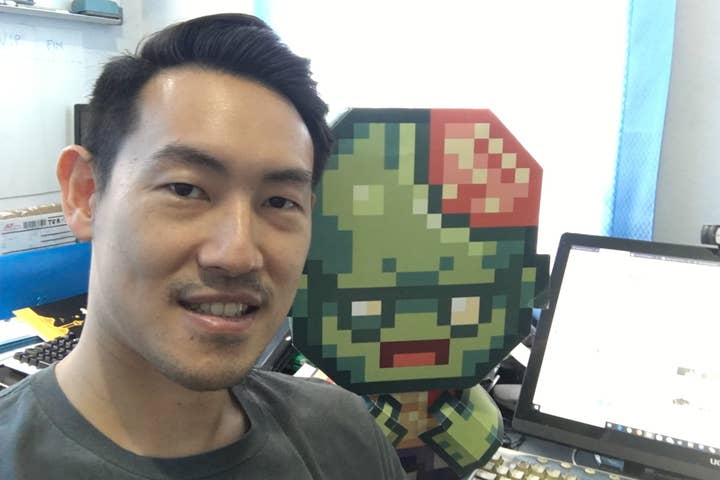
If building a sustainable career in video games is hard, it is doubly so for those living and working outside of traditional development hubs. When publishers look at emerging industries around the world, many don't see places where new games are being made; they just see new places to sell their own.
"Indonesia, and Southeast Asia in general, tend to be overlooked by the global games industry and only be seen as a market," says Kris Antoni, founder and CEO of Toge Productions, one of the leading independent games companies in Southeast Asia.
"We have amazing talents in Indonesia and they are creating amazing games, but it's very hard for them to get visibility from the international games media or get signed with publishers. Usually, one of the best ways to meet publishers and press is to go to big game events such as PAX, GDC, Gamescom, etc -- sadly most Indonesian devs can't afford it."
When Antoni founded Toge Productions in Jakarta in 2009, Indonesia's industry was largely composed of hobbyists, with just a handful of development studios. Antoni started the Game Developers Gathering two years later, with the aim of providing a place "where all of Indonesia's game industry stakeholders could meet, get to know each other, share knowledge, and build an ecosystem."
"Indonesia, and Southeast Asia in general, tend to be overlooked by the global games industry and only be seen as a market"
Kris Antoni
That event still exists today, as the consumer-focused Game Prime and the trade-focused IGDX. However, while it gave Indonesia's developers a bedrock from which to build, games made in the country were still struggling to find an audience. Noticing the increasing frequency of studio closures, in 2015 Toge started an initiative that offered local developers the chance to collaborate, receive mentorship, and in many cases funding. By 2017, the company was a full-fledged publisher, focused on bringing Southeast Asian games to the global market.
"I wanted to give these amazing devs and their games the chance they deserved," Antoni says. "Also, I want to see more games with Southeast Asian representation, telling our stories, history, and culture to the world. If no publisher is willing to pick up Indonesian games, we will do it ourselves."
While our advisors said Toge had a hand in a relatively large number of the Indonesian-made games on Steam -- either as publisher, or just as a mentor -- Antoni is full of gratitude for the help he was given by so many: his teacher and mentor, Dien Wong; Toge's COO Jonathan Manuel Gunawan; even those who ran the Flash platforms that hosted its early games, such as Newgrounds' Tom Fulp, Kongregate's Emily Greer, and Armor Games' Daniel McNeely.
If Antoni has one piece of advice for the global industry, it is the same one that has inspired so many of his achievements.
"Pay more attention to Southeast Asia."
Elaine Gómez, Latinx in Gaming
While pursuing a master's degree at research institute i3, Elaine Gómez was involved in a year-long research project evaluating the representation of women in games and game development.
"I was inspired by all our findings to be the change I wanted to see and decided to go after game design education in hopes of joining the industry," she says.
After graduating from USC's Interactive Media and Games MFA program in 2016, Gómez taught game design and development classes at various institutions before landing a job as a game designer at E-Line Media. She still works there today, wearing many different hats ranging from gameplay design to UI/UX design.
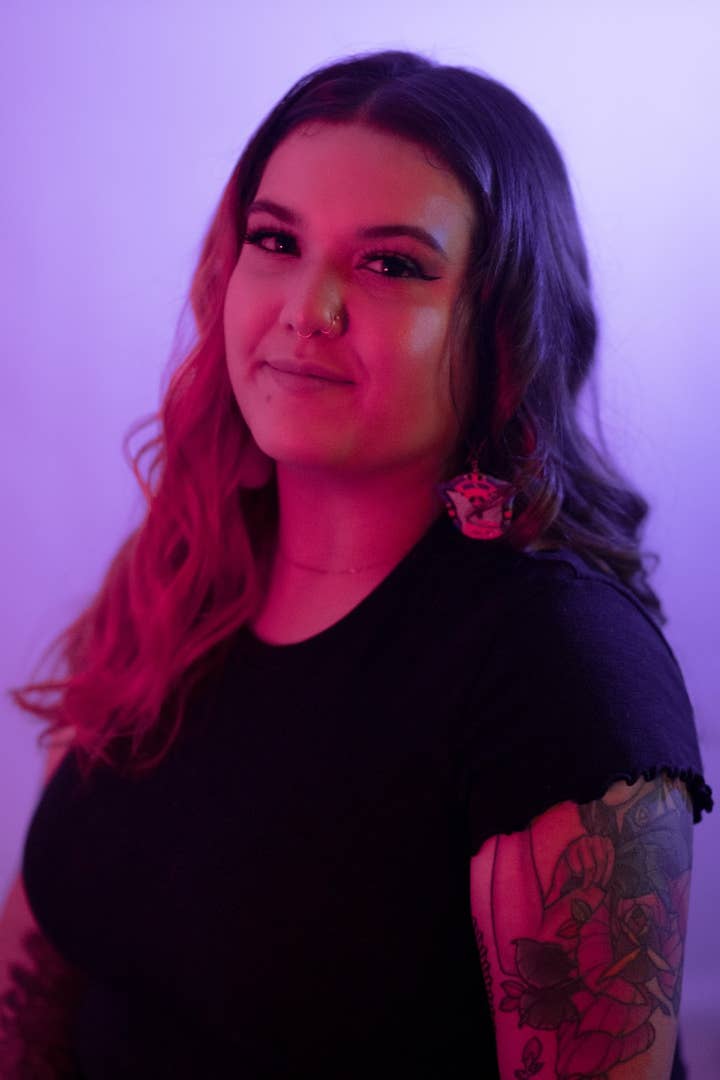
In keeping with her educational inspirations, Gómez is also one of the co-founders of Latinx in Gaming. She works to build a safe and inclusive community that elevates Latinx-identifying creators in the US, Latin America, and Caribbean games industries.
"Being a co-founder and staff member of the Latinx in Gaming team has allowed me to actively be the difference and change that I want to see in the industry," Gómez says. "We have the power to change people's lives, and that has been something that has been very rewarding for me to see."
Gómez acknowledges she had to make sacrifices to pursue her dreams, but attributes her resilience and perseverance to those close to her, including her professors, her parents, and friends. But she wants to see support extended to all women of color, not just from their close networks, but from the industry as a whole.
"The best way for the industry to support me is by elevating and investing in women of color into positions of leadership where we can make a big impact," she says. "It will set us up for success and allow us to become leaders not just in our disciplines, but in advocacy and representation for the next generation of game makers."
Olga Makushenko, Women In Games ambassador
Earlier this year, Olga Makushenko started Mentors Dialogue, an initiative with the aim of normalising the practice of mentorship in Russia. Attendees are encouraged to speak openly about any issues they're facing, whether it's advice on a specific project or more general guidance on how to grow their business.
Creating equality of opportunity in the Russian industry also drives her work around diversity. In 2017, she started the "Wonder Women" series meetups in Moscow, promoting frank discussion of female representation in the country's games companies, as well as helping attendees to build self-confidence as they navigate their careers.
"Being in a leadership position for a few years now, I noticed individual differences between women and men colleagues, often even working in one team," she says of her position as managing director of PC and Console Games at 101XP. "For instance, men were approaching me with questions about salary raises much more often than women. It didn't depend on their position or experience, or level of skill -- everything came down to self-confidence.

"When I was doing my first steps in the industry nine years ago, I wasn't lucky enough to have other women around me to advise me or simply give feedback. Now I seek to change it. The central part of my work is focused on mentoring other women, encouraging them not to be afraid to act, sharing my own experiences and lessons I've learned."
While Makushenko believes Russia has an equivalent number of women working in its games industry to other countries, she still sees room for improvement. More pressing is the overwhelming proportion of men in leadership roles.
"Ask anybody to recall key people in the Russian industry, and they will name you a list. How many women will be on that list? Not much," she says. "Obviously, there are a lot of reasons for this, but the outcome is indisputable.
"Unfortunately, the situation with equal pay is also far from being solved. The major video games industry salary research conducted this summer in Russia, Ukraine, and Belarus showed that the difference in pay between men and women is enormous. Women, on average, make 35% less than men in the same position."
The solution, Makushenko says, will be found by raising awareness, and she is working hard to do exactly that. There is a plan to move the Wonder Women meetups online, to better reach Russian-speaking people in Eastern Europe, and in May this year Makushenko was named a Women in Games ambassador.
"The best way is always... to spread the word," she says. "I believe that one of my personal missions in the world is to help others. Thus, I would be extremely grateful to anyone sharing information about Mentors Dialogue and other events with those in need of it, or simply within the industry.
"This way, we won't just help people on an individual level, but bring positive change in the entire industry."
Lual Mayen, Junub Games
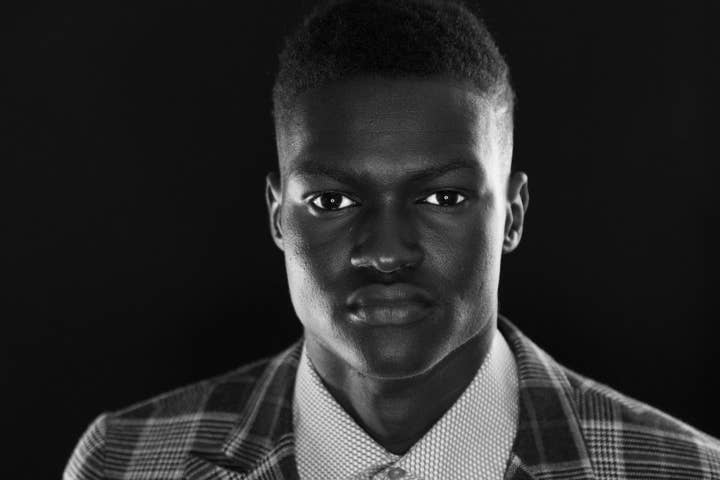
For the young Lual Mayen, video games were far more than simple fun. Born to Sudanese parents fleeing the country's civil war, Mayen spent the first 22 years of his life in a refugee camp in Uganda. When he first played a video game, he immediately saw the medium's potential "to bring communities together" and create a better future.
"Growing up in the refugee camp, I never thought games were created by people," he recalls. "I thought they fell [from] heaven... It was [in the refugee camp] that I taught myself to use computers, write code, and build video games. I decided to dedicate my life to using the power of video games to promote peace and create social impact."
Mayen is now based in Washington, where he pursues that goal with his studio, Junub Games. His first project, Salaam, uses the mechanics and tropes of runner games like Temple Run, but instead puts the player in the role of a refugee escaping a country ravaged by conflict. Familiar systems like depleting energy bars and the need to purchase supplies to continue the journey take on a grim resonance.
"The game is a reflection of my personal life, featuring the story of my parents' escape on foot during the Second Sudanese Civil War over 25 years ago," he says. "Two of my sisters did not survive the 220 mile journey. I was born on the way."
"I decided to dedicate my life to using the power of video games to promote peace and create social impact"
Lual Mayen
Junub is also working on a virtual reality experience, which will use the immersive qualities of the technology to explore the way small decisions can contribute to violent outcomes and have "devastating and far-reaching consequences." Mayen hopes the games will show players how to resolve conflict, and "avoid the path of war."
"I am currently on a journey to start a foundation with a mission to equip refugees in displaced populations with digital and technical skills to access meaningful careers and opportunities," he says. "I believe that talent is evenly distributed but opportunity is not.
"The displaced persons or less privileged people who live in the refugee camp, their connectivity to technology or learning skills are not only a lifeline but a key to success in life -- which is part of my story, and I believe that we can use our experiences to create a sustainable future for others."
The Lual Mayen Foundation has already raised funding, and Mayen hopes to fully launch the project later this month. Among the services it will offer are a digital archive for family photos and videos, which are often lost by refugees in the process of displacement; "Cyber Centres" that will allow access to the internet and video games, as well as serving as community hubs; and structured learning programmes in STEM-related fields.
"So far I would say I have gotten great support from the game community and [a] few game studios," Mayen says. "The biggest help for the future is to find resources to continue to learn from this incredible community of games creators and players."
Ally McLean, The Working Lunch
If the games industry is to develop a more fair and inclusive culture, the act of holding the door open for underrepresented groups will be vital. According to Ally McLean, that was the impetus behind The Working Lunch, the Sydney-based group offering mentorship to women and non-binary people building careers in the games industry.
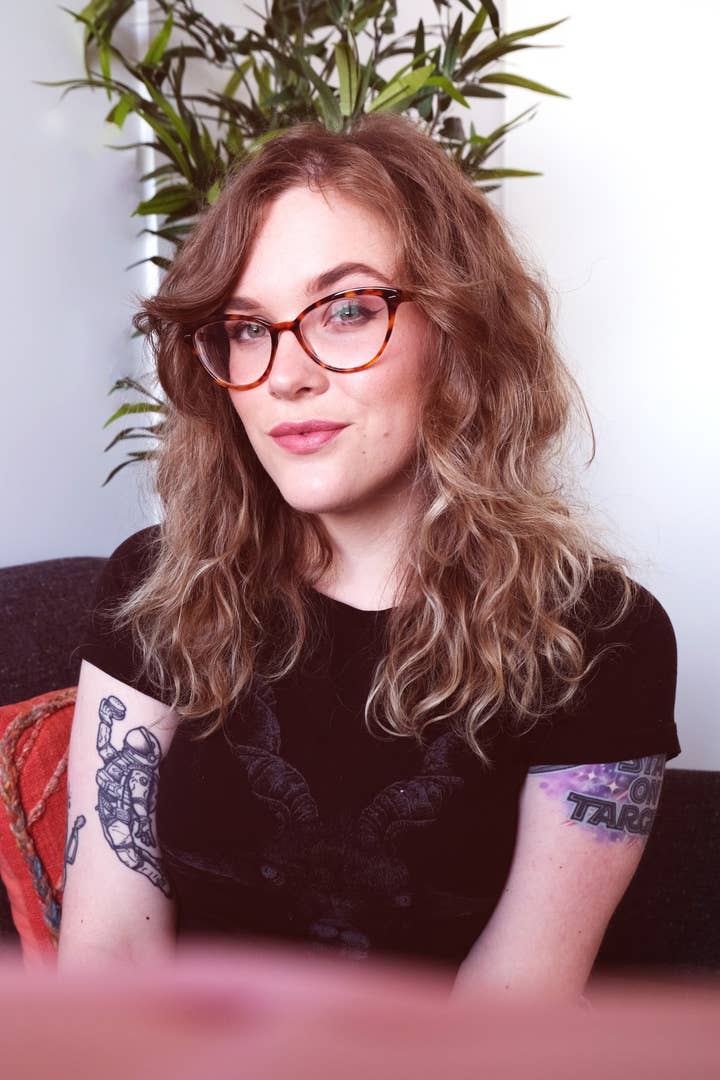
"As a result of my privilege and the access that being a bit of an 'online personality' at an early age afforded me, I had some transformative experiences with mentorship when I started working in games," McLean says, referring to the large community she built through her Eve Beauregard pop culture and cosplay brand.
"I was working at a job that, in some ways, made me more aware of the challenges of progressing your career in games when you're not one of the guys. I started mobilising my close friends and confidants in the industry around the idea of opening up our networks more formally to entry-level women who didn't have the same support I benefited from. The problem I wanted to solve was access."
With the backing of Australian trade body IGEA -- and particularly its COO, Raelene Knowles -- The Working Lunch grew rapidly, and expanded its remit just as fast. McLean now expresses regret at the group's early focus being purely on those who identify as women, but The Working Lunch adapted to encompass all underrepresented genders, working with local organisations like Queerly Represent Me and bringing in a more diverse group of mentors and "chapter leads" to guide and shape its initiatives -- which now cover Sydney, Brisbane and Adelaide in Australia, and Wellington in New Zealand.
"I see this as the first baby steps towards making Working Lunch the most powerful launching pad it can be for the people in games who deserve a seat at the table," McLean says.
In addition to mentorship, The Working Lunch produces a "handbook" that includes resources and advice on areas like goal setting, salary negotiations, and more. McLean has a longer term objective of producing a master handbook that could be distributed -- for free -- in schools, conferences, and games companies, addressing the problem of the best advice often being too expensive to access for those who need it the most.
"This is the baby steps towards making Working Lunch the most powerful launching pad it can be for people who deserve a seat at the table"
Ally McLean
Each year, The Working Lunch organises Next Exhibit at PAX Australia, which showcases games made by diverse creators, and is the joint effort of a paid staff of people from underrepresented groups.
"Whether it's writing press releases, creating artwork, running social media, photography, working on the show floor -- these are all really valuable transferable skills and experience to have on your resume," McLean says. "I'm really proud we can facilitate that and pay people to do it."
In 2021, The Working Lunch aims to extend its support from entry-level people to those in the middle of their careers, and on the path to seniority. To learn more about this and the group's many other activities, McLean is keen for the industry to make contact and start a conversation.
"Talk to us!" she says. "One of the strengths of Working Lunch is we can be an intermediary to connect your desire to help with the right people and the right opportunity. If your company wants to do more to grow the industry for the better, I would love to hear about it."
Sun Park, Out of Index
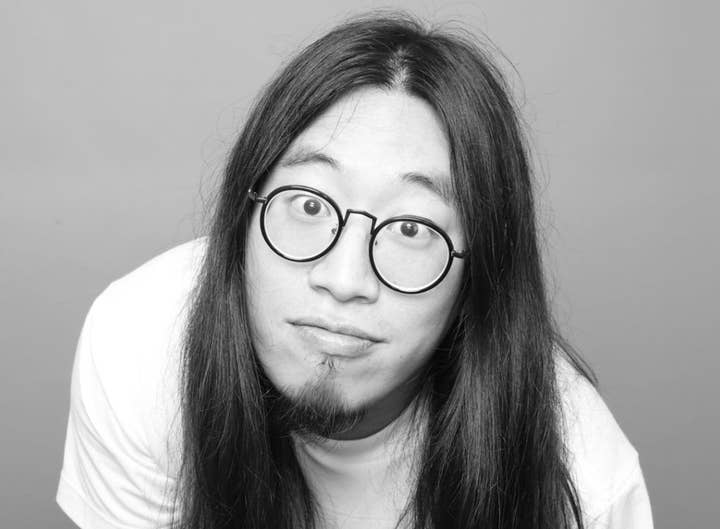
The indie boom of the late 2000s changed the course of the games industry, but not every global region felt its impact. The South Korean scene, like others in East Asia, grew and changed in a different way, with the vast majority of companies focused on free-to-play mobile games -- whether ambitious MMORPGs, or more casual games from smaller teams.
"But not everybody does that," says Sun Park, founder of the Seoul-based indie studio Turtle Cream. "After PUBG and some Korean indie studio's big successes on Steam, the number of PC and console game developers keeps growing."
Park is a fundamental part of that growing culture of independent development in South Korea -- a group of what he calls "digital artists who create things that haven't ever existed in the world." To give that community a focal point, he helped to start Out of Index (OOI), one of the first events of its kind in the country.
"Out of Index exists for encouraging game developers. We'd like to let other developers be shocked by the games we are showcasing"
Sun Park
"We need to do more experiments to make better creations," Park says. "Out of Index exists for encouraging game developers. We'd like to let other developers be shocked by the games we are showcasing. We believe that could make people do their own experiments from those inspirations, and that finally could make the game industry more creative."
In addition, Park is one of the organisers of the monthly Seoul Indies meetup, the regional organiser of the Global Game Jam in South Korea, and the founder of the monthly Project.99 experimental games workshop. In each of these endeavours, Park acknowledges a huge amount of help from his friends and peers.
"Unfortunately, we make almost no profit with OOI because we always spend all of the money we earned to make better festivals -- organizing festivals is totally volunteering," he says. "So I'd like to thank all OOI staff, including past organizers Jake Jonghwa Kim and Jay Jaewoo Jeon, current OOI co-organizers Jaewon Yoo and Sanghoon Park, and the past and current festival art director Yeri Kim and Yuri Baek. Also I'd like to mention Marc Flury, who is co-organizing Seoul Indies.
"OOI always needs to get more spotlight from [international] media, so please keep watching what we're doing as an organization. Every kind of collaboration with other festivals or sponsors is welcome."
Melissa Phillips, Silver Rain Games
"It's not about championing diversity, it's about building a safe space for developers to find their place within the industry. Championing diversity alone doesn't create change -- it needs action, and this has to start from the top and be present at all levels of management in order to be effective."
When it comes to Silver Rain Games' mission, the UK studio was co-created by Abubakar Salim and Melissa Phillips in March 2020, the message is clear.
"I couldn't have even considered doing half the things I'm doing now without the support of Abubakar Salim," Phillips continues. "Silver Rain has this unusual setup where our creative director is also off being a Hollywood actor, starring in a sci-fi drama directed by Ridley Scott, which obviously brings its pros and cons.

"But without Abu and his commitment to making a game, none of this would have happened. He's an incredibly open and curious person who has helped to create the environment of the studio. It means we are not afraid to try different methods and see what works best for the team."
Silver Rain's aim is to create games that welcome new audiences, games that might encourage someone who has never been interested in them before to pick up a controller and have a go. Phillips was nominated for our Game Changers list for her work "leading the most extraordinarily diverse studio around" -- but it's a label that can be difficult to carry.
"I think there's a huge amount of expectation and power given to individual voices to speak for a whole group of people in this industry," she says. "For example, I'm often asked to speak on behalf of 'being a woman', when the reality is that everyone's journey is incredibly individual and a result of many different things coming together.
"There's a certain exoticism that we receive as a result of the makeup of the studio. We are often described as 'mysterious' or 'unusual' when the press are looking to explain the diversity of our leadership. This can be unhelpful as they're describing our physical representation and not skills and abilities that we possess as a team.
"In order for this to change, I think we have to focus on having diverse representation at all levels of our community and industry. I look forward to a time where every studio looks like ours and we aren't seen as being 'brave' or 'risky'."
Liz Prince, Putting the G Into Gaming
Liz Prince is the long-serving business manager of recruitment specialist Amiqus, but for the past two years she's had a second venture to focus on: Putting The G Into Gaming, an initiative designed to address an ongoing issue in the games industry.
"Through my work at Amiqus and as a woman in games myself, I know how important it is for the industry to step up when it comes to attracting more women into the industry - and then keeping them here," she says.
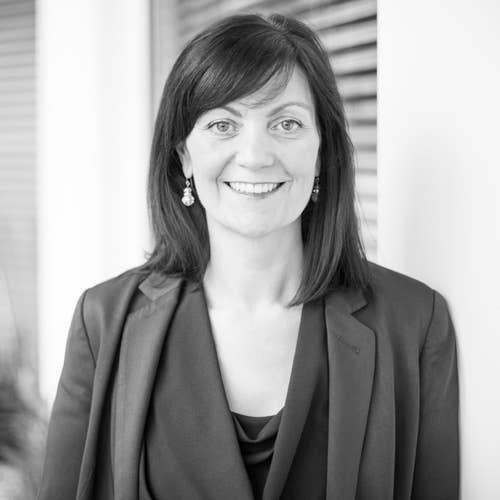
Putting The G Into Gaming -- also known as G Into Gaming or GIG -- is a campaign that explores ways to accelerate gender diversity in the games industry. The bulk of the work is largely educational: Prince writes articles on the issue, speaks at events, and works directly with studio heads on improving their diversity and inclusivity initiatives. G Into Gaming has also sponsored other projects with a similar goal, such as our GI 100 of the most influential women in the UK games industry.
In that regard, Prince notes that plenty of studios recognise the gender imbalance and have publicly vowed to do something about it -- but that can sometimes be where the effort ends.
"Many don't actually know where to start to make good on those pledges, particularly the smaller indies who may not have dedicated HR departments," she says. "I spend lots of time having one-to-ones with studio heads, HR departments and CEOs in games businesses who want to know where to start with the diversity journey, or want to chat through the things they're already doing.
"I also invest lots of time in research -- reading and learning from other industries and from world class D&I specialists to bring best practice into games and bridge the knowledge gap."
"A change in mindset and approach must be led by senior management teams"
Liz Prince
G Into Gaming has also collaborated with other diversity and inclusivity organisations, such as Women In Games, POC In Play, BAME In Games and Out Playing Games. And Prince has the venture's next major goal already in mind.
"At the start of this year, I started planning something aimed at C-Suite level, to bring peers together to start to learn from one another and to begin to tackle the issues of D&I at the top," she says. "A change in mindset and approach must be led by senior management teams. Too often we see heads nodding in agreement, but then nothing changes. It will take ambition and action to ensure our industry is diverse and inclusive.
"This must come from the top. It is the leaders who can set and direct the collective vision for a diverse and inclusive industry and bring it to reality in their studios, as a priority for their businesses. COVID got in my way a little this year, but I'll restart this plan, alongside other leadership focused activities, for 2021 -- and support from the industry on this would be amazing, as I believe that this will make a huge difference."
Cherry Thompson, accessibility punk
Cherry Thompson has been pushing for disability and inclusion in games for years, consulting for developers, talking at conferences, serving on the board of GaymerX, and working to make the industry a more welcoming place for everyone.
That work has taken on a new form in 2020, and not just because they did motion-capture for the wheelchair-using character Cerise in Marvel's Avengers. After years working as an independent, they joined Ubisoft in April as a game designer and accessibility specialist, and have been working on the publisher's first internal technical design benchmarks for accessibility.
While accessibility features in games are often broken down and categorized by disability type -- motor, hearing, visual, or cognitive -- those distinctions are more helpful for players than developers, Thompson says.
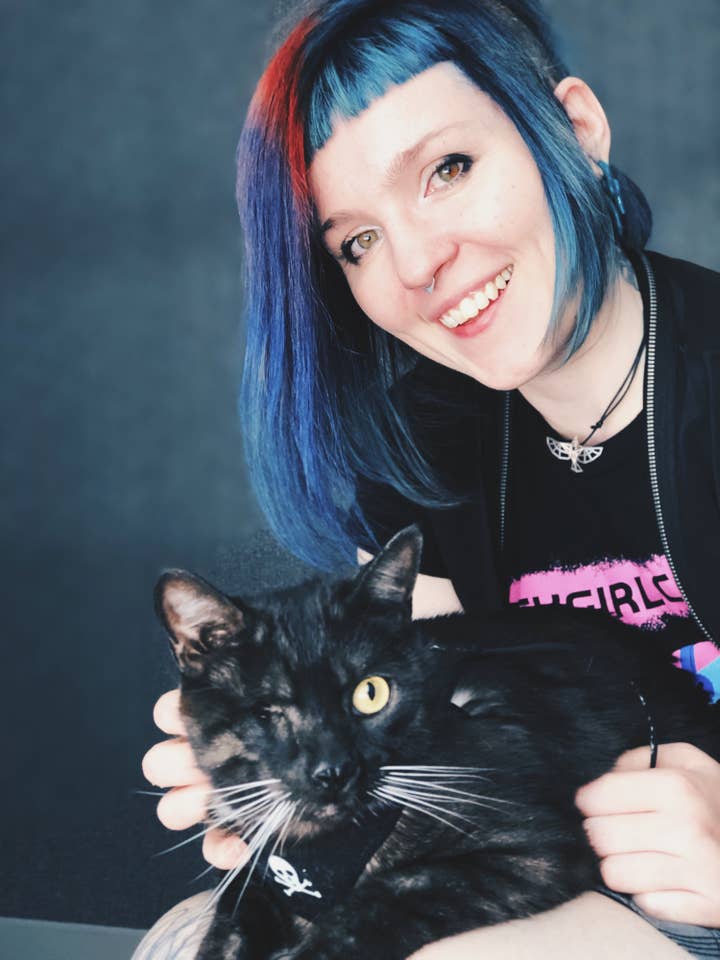
"All barriers overlap across multiple barrier types and many players will even experience more than one type themselves, whether traditionally considered 'disability' or not," Thompson says. "It's important to me that we see accessible design through the right lens - not trying to solve specific disabilities, but solving for more successful design and player experience. Otherwise there's a lot of potential for ineffective solutions not to mention stigma, segregation and pity, which are the cause of a lot of society's biases toward disability."
Thompson's new benchmarks will eventually cover controls, navigation, gameplay, progression, and virtually everything else in games, focusing on best practice design considerations. They hope to share the benchmarks if they prove effective.
"I see it as being able to pass on my expertise culminating from a decade of experience," Thompson says. "This is one of the reasons (in a nutshell) I made the decision to settle down and join a big publisher."
They acknowledge that "no one does anything alone in anything, but especially games," spreading thanks to mentors, colleagues, and everyone working for change.
"I'd be remiss to not mention the countless LGBTQIA+, women, BIPOC, working class, and other marginalized developers across the world in every country and community who've fought to make space and build safety," they say.
Getting a little more specific, Thompson names The Games Accessibility Conference and its organizers Ian Hamilton and Tara Voelker as "an enormous driving force behind the change we've seen for accessibility in particular."
At this point, Thompson says the best support the industry can give is to lift others up and keep working to make change, space, and safety.
"It's an active effort for all of us where even the smallest moment, like standing up for someone in a meeting or other space where they're being excluded, creates waves of change and stops them feeling alone," Thompson says. "I've had a lot of support personally in 2020, so I just want to ask everyone to keep learning, passing it on through mentorship, knowledge sharing, and research or working with players of all backgrounds."
